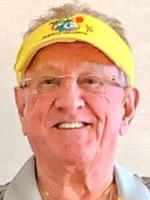
In recent years, the radio industry in Seattle and throughout the U.S. has changed dramatically.
Who would have guessed a few years ago that five broadcast companies would control most all of commercial radio stations in Seattle. Ten years ago, if someone had suggested that possibility, we’d have though he drank his lunch. It was inconceivable.
The radio entrepreneurs of years past, like Pat O’Day, have moved on to other businesses. I remember well when “deals” were made on a napkin and a handshake was a contract.
No more. Today’s broadcasting is a world of paperwork—for the client, the salespeople and the sales managers. Some sales reps say they have no time for selling because too much time is spent doing paperwork and reports. Then they get called on the carpet if they don’t hit their budget or sales goals. It’s definitely a corporate world.
Today, the radio groups are controlled by “bean counters” and program directors (PDs). The bean counters help the GM cut costs and sometimes screen credit to such an extreme that you have to prove you don’t need credit to get it.
The PDs at some stations dictate to the sales department what will—or more often what will not—get on the air. The sales rep is helpless and, in many cases, the sales manager doesn’t even have any influence in these decisions.
It’s particularly interesting that some PDs have changed their station formats up to three different times, yet their corporate bosses still give them the powers of a dictator in terms of what is or isn’t broadcast on their station.
Many media buyers perceive buying radio as “a numbers game.” I disagree. I’ve never met a “gross rating point” or “cost per point.” I have met a lot of people—and it still takes “people” buying the products or services to help clients get results from their ads.
Anyone buying “numbers” certainly isn’t accountable to his/her clients for results. After all, they can justify their buy “by the numbers.” That may be OK in the high-tech realm of Madison Avenue, but in the real world, numbers don’t count, people do, particularly with retail clients who live or die by the advertising results. If an advertiser doesn’t reach enough target audience people, the numbers are meaningless.
I saw and excellent example of “people over numbers” after 9/11. The world and business virtually came to a stop. People stopped buying goods, other than their daily needs. They stopped traveling. If they didn’t absolutely need something, it would wait.
In the meantime, business people suffered badly. Most businesses’ sales dropped sharply. Some even failed. This is where “people” became more important than “numbers.”
I asked the radio salespeople to help the people in business; together we came up with ideas and promotions to help the advertising clients get some results, often with the goal to just survive as a business. The people of Seattle radio came through, where a corporate bean counter would have said “absolutely not.”
Our world today is cautious, but more back to normal. People are beginning to spend money again, and we can target our audience on radio to specific people and lifestyles. For example, some radio stations’ audiences are a market for domestic automobiles, while others’ reach large numbers of import-vehicle buyers.
Arbitron numbers do NOT tell the target audience story accurately. A computer does NOT “think,” it just spits out numbers. Numbers do NOT buy anything. If you rely on your computer to do the job of media buying and getting your clients the best results, the radio stations could cut costs by eliminating the people in their sales departments–and the results would be disastrous.
Seattle may be the nation’s 12th largest media market, but we’re still a small town. That’s why developing close relationships with radio sales reps and management still works.
Sparky Taft (dynamicresultsadvertising.com) is president of Dynamic Results, Inc. a long-time Northwest broadcast advertising agency. He also has been general manager of eight radio stations and has owned his own station.
